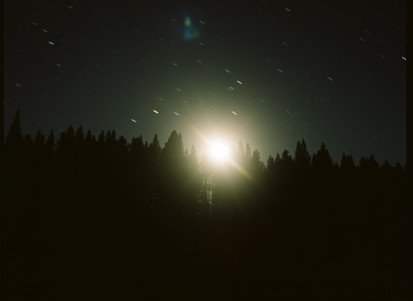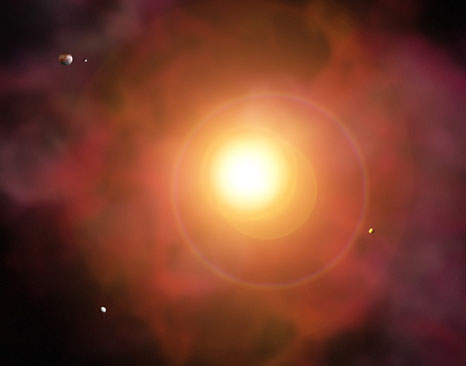Quran
- This is post #26 in our series on Tafseer of Juz ‘Amma (click the link to see all posts in this series). The noble she-camel, prized in the Arab society, was actually one of the signs Allah sent to a nation. What did they do with it? Surahs are usually named by something unique in their content. But the sun (ash-shams) is mentioned in several surahs; so why is this one called Surah Shams?
Tafseer Surah Qadar: What’s Better Than 1000 Months?
This is post #25 in our series on Tafseer of Juz ‘Amma (click the link to see all posts in this series).
Reason of Revelation
The Messenger of Allah (salallahu alayhi wa sallam) told the companions about a man of the previous nations; a man who lived and fought jihad for over 1000 months (roughly 83 years, 4 months). (In case you didn’t know, the previous nations lived longer than us–like Prophet Nuh (alayhi salaam), who did da’wah for nearly 1000 years.)
The companions were amazed, and they said: how can we compete with him?
And subhanallah, this is a gem. Look at the companions. They prioritized and competed for the akhirah. Subhanallah to the point that, they don’t just try to do “some good deeds before I die;” not enough. They competed with each other–but even that was not enough. Rather, they competed with all of the Muslims, ever, starting from the time of Prophet Adam, until the Day of Judgment.
We need to really look at ourselves and see, how much are we like them? Or are we just vying for bigger houses, better cars–more dunya?
Tafseer Surah Abasa: What Really Matters?
 It’s not dunya status that matters. Allah teaches us this again in Surah Abasa–it’s the one with taqwa.
It’s not dunya status that matters. Allah teaches us this again in Surah Abasa–it’s the one with taqwa.This is post #24 in our series on Tafseer of Juz ‘Amma (click the link to see all posts in this series).
How would you feel if someone you love corrected you, in public, in front of everyone else? Would you feel condemned, or criticized? Would you take it more seriously than someone you don’t like criticizing you?
And what if Allah, the Lord of the Universe, criticized you … in public?
Tafseer of Surah Tawheed
This is post #23 in our series on Tafseer of Juz ‘Amma (click the link to see all posts in this series). Allah says, in Surah Tawheed, also known as Surah Ikhlas: قُلْ هُوَ اللَّهُ أَحَدٌ اللَّهُ الصَّمَدُ لَمْ يَلِدْ وَلَمْ يُولَدْ وَلَمْ يَكُن لَّهُ كُفُوًا أَحَدٌ Translation: Say, “He is Allah , [who is] One, Allah , the Eternal Refuge [As-Samad], He neither begets (gives birth to) nor is born, Nor is there to Him any equivalent.3 Shields of Protection From Supernatural Forces
This is post #22 in our series on Tafseer of Juz ‘Amma (click the link to see all posts in this series).
 The protection of Allah is easily earned and very, very powerful.
The protection of Allah is easily earned and very, very powerful.Muslims love talking about Jinns and black magic. Yet, when it comes to inoculating themselves from supernatural forces, Muslims are often either ignorantly doing most of what they need to do, or proverbially standing on the interstate highway, woefully oblivious of thousands of cars speeding by at near-miss distances. And many of us, or people we know, personally do get hit.
Yet even the newest Muslim is often quickly equipped with powerful shields of protection against these forces. What are they?
The Carpet-Bombed Elephant
This is post #21 in our series on Tafseer of Juz ‘Amma (click the link to see all posts in this series). The Sabab-un-Nuzool (reason of revelation) for Surah Fil well-known; you can read all about it, along with some lessons and gems, in this post by Sr. Mariam 3.36. Please read it, since I won’t touch on those points. I will mention, however, two points not mentioned there–that the Christian tyrant king who brought his elephant, why did he decide to destroy the Ka’bah?Those Who Show Off in Their Salah
Note: This is post #19 in our series on Tafseer of Juz ‘Amma (click the link to see all posts in this series). In Surah Ma’oon, Allah says: فَوَيْلٌ لِّلْمُصَلِّينَ الَّذِينَ هُمْ عَن صَلَاتِهِمْ سَاهُونَ الَّذِينَ هُمْ يُرَاءُونَ وَيَمْنَعُونَ الْمَاعُونَ Translation: So woe to those who pray; those who are heedless of their prayer, those who make show [of their deeds]; And withhold [simple] assistance (al-ma’oon). [Surah Ma’oon, verses 4-7]Do YOU Encourage Good?
Note: This is post #18 in our series on Tafseer of Juz ‘Amma (click the link to see all posts in this series). Insha’Allah we’ll be kicking up the post frequency to three times a week in order to finish before Ramadan.
Allah says, in Surah Ma’oon:
أَرَأَيْتَ الَّذِي يُكَذِّبُ بِالدِّينِ
فَذَلِكَ الَّذِي يَدُعُّ الْيَتِيمَ
وَلَا يَحُضُّ عَلَى طَعَامِ الْمِسْكِينِ
Translation: Have you seen the one who denies the Repayment? For that is the one who drives away the orphan, and does not encourage the feeding of the poor. [Surah Ma’oon, verses 1-3]
Notice the connection here–verse one, the one who denies Ad-Deen, the Day of Repayment. And verse two and three? He drives away orphans, He doesn’t encourage feeding of the poor.
It’s not that he doesn’t feed the poor. It’s that he doesn’t encourange feeding the poor.
Al-Hakumu At-Takathur …
Note: This is post #17 in our series on Tafseer of Juz ‘Amma (click the link to see all posts in this series).
 Competition in [worldly] increase diverts you, until you visit the graves …
Competition in [worldly] increase diverts you, until you visit the graves …Allah says, in Surah At-Takaathur:
أَلْهَاكُمُ التَّكَاثُرُ
حَتَّى زُرْتُمُ الْمَقَابِرَ
Translation: Competition in [worldly] increase diverts you, until you visit the graveyards. [Surah At-Takaathur, verses 1-2]
Subhanallah, even though these verses were revealed over 1400 years ago, we still see the exact same situation today. Al-Haakum means, it makes you compete with each other. At-Takaathur is rivalry, competition, in accumulating material things; thinking that life is about toys, and the one with the most (or most expensive) toys wins.
What is Takaathur?
Arabic Explanation of Surah Takweer
Note: This is post #17 in our series on Tafseer of Juz ‘Amma.
 When the sun is kuwwirat …
When the sun is kuwwirat …We’re going to digress a bit and jump back to Surah Takweer. This post is based on Shaykh Nouman Khan’s tafseer, which heavily emphasizes the Arabic language. I hope you will find, as I found it, as a glimpse of a previously-unseen world, a depth of knowledge that just drips from the Arabic language.
Allah says, in surah Takweer:
إِذَا الشَّمْسُ كُوِّرَتْ
Translation: When the sun is kuwwirat … [verse 1]
There are a lot of gems that we learn even from this first ayah:
- Idhaa + Past-Tense: Idhaa is an indicator of future-tense “when (something will happen).” Yet, kuwwirat is past-tense; why? This combination means something is so certain, it’s like past-tense. So Allah is saying “when this happens,” yet it’s certain that it WILL happen; as certain as the past is past.
- Nominal Sentence: The default in Arabic is to put the verb first–“kuwwirat ash-shamsu.” To reverse this into “ash-shamsu kuwwirat,” shows emphasis, and makes it a tougher, stronger sentence. This hints at the audience–Mushrikeen in Mecca, the worst and most obstinate of them, who are listening to this revelation.
- Passive Voice: Allah could have said, “When I wrap up the sun,” but He didn’t. Why? If you’re biased against someone (say a political party), no matter what they say, even before they open their mouth, you say, “psshh.” But here, passive-voice highlights the maf’ool, the recipient of the action–the sun, the stars–instead of the doer.
As for the meaning of kuwwirat, kawwara means to wrap something around something; it’s used in the context of a turban, something long, that’s wrapped around your head.
Allah is applying the same meaning here–that the light of the sun, something that’s long, will be kuwwirat, wrapped up. Wrapped up meaning, something will cover it, and it will no longer be visible; and it will be wrapped slowly, part by part disappearing–the same way that Allah described the day as wrapping around the night and the night wrapping around the day.
This is something scary–that you see the sun wrapped up, and losing its light. But there’s more …